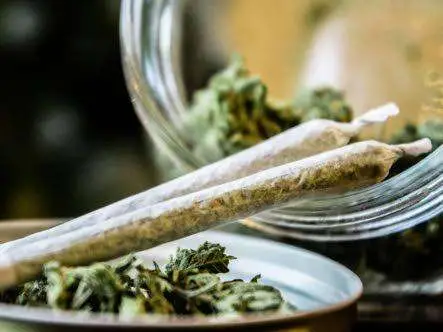
Medical vs recreational use of cannabis
The use of cannabis has been documented for centuries with the medicinal use of the plant preceding its recreational use. There is also documentary evidence of cannabis being used for spiritual purposes among different cultural groups in ancient times.
However, in the past few years, the recreational use of cannabis has become a popular practice. With deregulation taking place across the globe, including legalisation of cannabis in Canada last month, there are more legal means of access. Although these systems mostly accommodate medicinal use, there is the allowance of recreational use in some countries.
Medicinal cannabis is the use of the plant or its chemical compounds to treat the symptoms of certain conditions or diseases.
The term recreational cannabis means the use of the plant for enjoyment, entertainment or relaxation. Since recreational use relies more on the psychoactive effects of cannabis rather than the medicinal benefits, there is usually a higher THC content in strains of cannabis, used for non-medical purposes.
Medical cannabis is a much more regulated and organised industry which patients seeking to use the product must obtain a recommendation or prescription from a licensed medical practitioner. Also, medicinal cannabis in Jamaica can only be purchased from a retailer licensed by the Cannabis Licensing Authority. In other countries, the same measures are followed, and in certain states in the USA dispensaries can also provide cannabis to non-medical users once they are above the required age.
However, it is well known that cannabis, whether for medical or recreational use, can be obtained outside of this system. It must be noted that if people seek certain medical benefits from cannabis it is best to consult a licensed doctor who has been trained to prescribe cannabis and to ensure that the cannabis retailer is able to provide the most effective cannabis product that is most suitable for therapeutic use.
Are You Qualified for Medicinal Cannabis?
In the United States and other countries people must be suffering from certain conditions or illnesses in order to qualify for medicinal cannabis. Each US state has its own list of qualifying conditions, with 29 states having cannabis laws that permit medicinal use. The common conditions include:
HIV/AIDS
Patients with HIV/AIDs can experience wasting syndrome which is a condition that causes excessive weight loss due to the depletion of adipose tissue and muscle mass. Cannabis helps to increase appetite leading to weight gain and can relieve nausea and vomiting in AIDS patient.
Cancer
Cannabis is being studied as a treatment for cancer due to its ability to reduce tumour growth. However, its most common use for cancer patients is to alleviate the symptoms of chemotherapy such as pain, nausea, fatigue, appetite loss, and vomiting.
Chronic Pain and Inflammation
Cannabis is commonly used to treat many types of pains; from chronic pains that last for long periods of time, to pains experienced in the different parts of the body such as headaches, joint and muscle pains. Also, it is effective in reducing nerve pains, inflammation, and subsequently swelling.
Epilepsy / Seizures
Cannabis is currently being used as an effective anti-convulsant for patients, including minors, who suffer from epilepsy. It has been proven to help decrease the frequency and intensity of seizures.
Glaucoma
Glaucoma can lead to vision loss and increased pressure in the eye. Cannabis can be used to reduce eye pressure and prevent the progression of the disease, helping to improve vision.
Post-Traumatic Stress Disorder (PTSD)
Cannabis can help to reduce anxiety and combat insomnia, which are common symptoms of PTSD. It can also suppress nightmares and help people to achieve deeper sleep.
Neurodegenerative Diseases
Cannabis has been shown to have neuroprotective properties and has been applied as a treatment for a number of neurodegenerative diseases such as Tourette’s syndrome, Alzheimer’s disease and Parkinson’s disease. The use of cannabis helps to improve movement by reducing muscle stiffness, which can affect mobility in the limbs and face.
Multiple Sclerosis (MS)
Medicinal cannabis has been quite applicable as a therapeutic treatment for a number of symptoms of Multiple sclerosis. This includes the reduction of muscle spasms and stiffness, gastrointestinal issues pain, inflammation, sleep issues as well as improvement in the mood of patients.
Other conditions treated with medical cannabis include:
* Crohn’s disease
* Eating disorders, eg anorexia
* Mental Illnesses
* Hepatitis C
* Amyotrophic lateral sclerosis (AML)
* Lou Gehrig’s Disease (ALS)
* Fibromyalgia
* Lupus
* Cystic Fibrosis

























